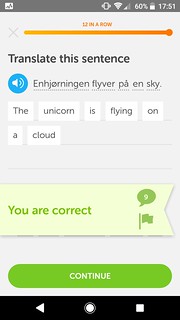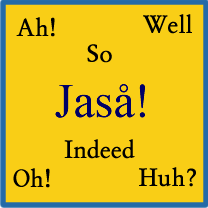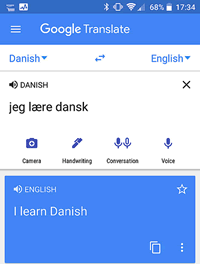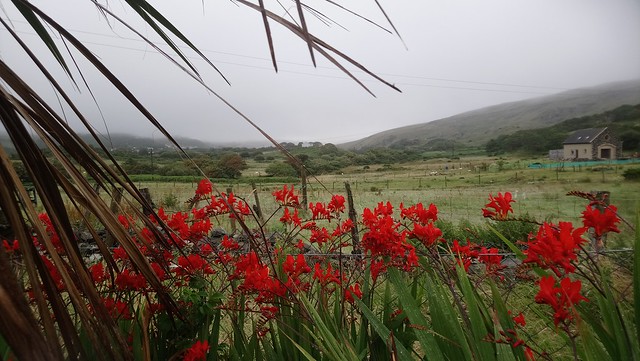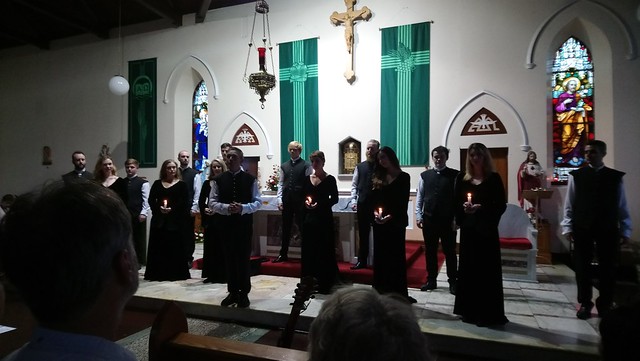In Danish, Norwegian and Swedish the word sky means cloud, as does ský in Icelandic. The word for sky in these languages is himmel (himinn in Icelandic), and in Swedish sky also means sky or gravy.
I learnt the Danish word sky the other day from the sentence: Enhjørningen flyver på en sky (The unicorn is flying on a cloud) – are very useful thing to be able to say.
Sky comes from the Old Norse ský (cloud), from Proto-Germanic *skiwją (cloud, cloud cover), from Proto-Indo-European *(s)kew- (to cover, conceal), which is also the root of the English word sky [source].
The English word cloud comes from the Old English clūd (mass of stone, rock, boulder, hill), from Proto-Germanic *klūtaz / *klutaz (lump, mass, conglomeration), from Proto-Indo-European *gel- (to ball up, clench), which is also the root of the English words chill, cold, congeal, cool, gel, gelatin and jelly [source].
In Old English there were different words for sky and cloud:
- heofon was the sky or heaven [source], which survives in such modern English expressions as ‘the heavens opened’ (it started to rain heavily).
- wolcen was cloud, and the plural, wolcnu was the sky or the heavens [source]. This became welkin in modern English, an archaic and poetic word for the sky, the upper air; aether; the heavens.
